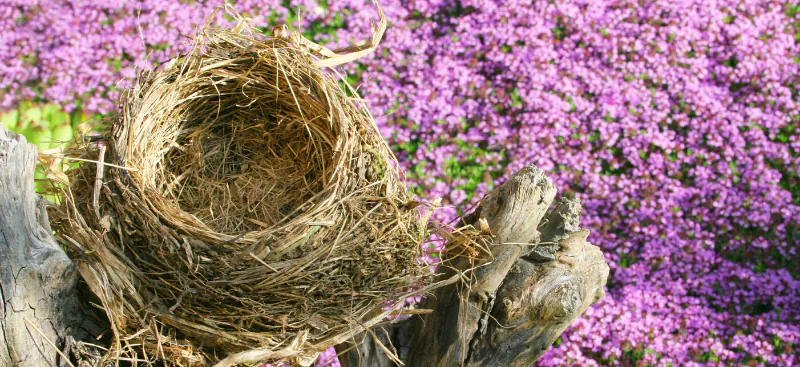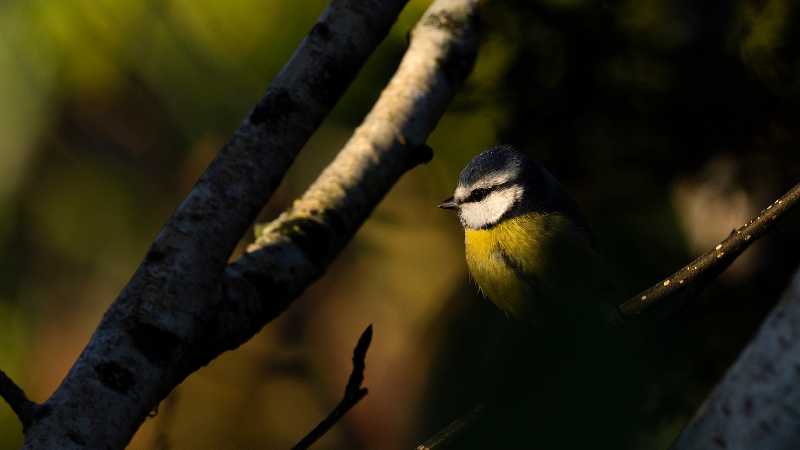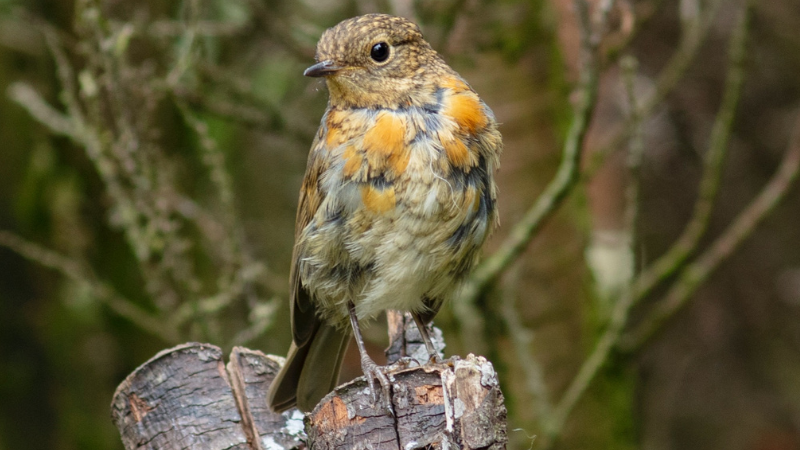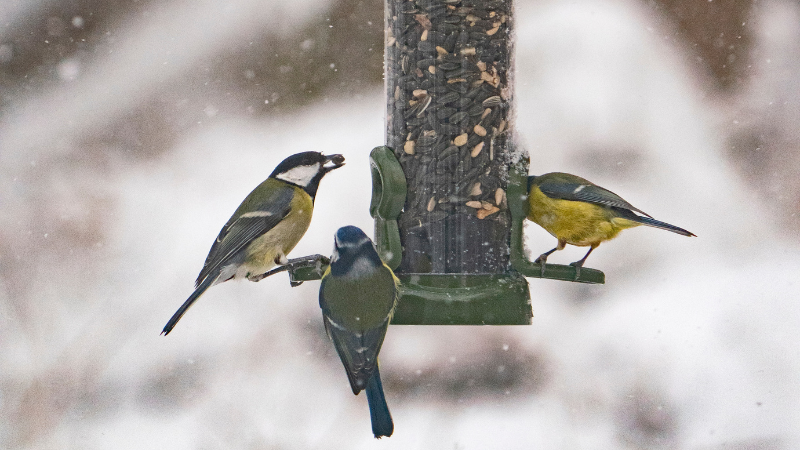Where Have All the Birds Gone?
Why are there no birds in my garden this August? That's a question we've heard on a daily basis from our customers this month, so we wanted to offer a few reasons as to why your garden may seem a little emptier than usual at the moment.
The weather or season
Our summers are only getting hotter, and with extreme heat affecting most parts of the UK, it's no surprise that some birds have decided to stay hidden this August. These scorching weather conditions can cause garden birds to take a more cautious approach to their day-to-day activities, with many opting to remain in the safety and shelter of trees to preserve their energy. Another way the hot season affects our wild birds is through their eating. Birds scavenge for food so that they can maintain their body temperature. In summer, the temperature keeps their bodies warm, so they will eat considerably less.
Moulting
Moulting is another reason that birds choose to stay hidden this time of year. Birds will moult for a few different reasons, including;
- Moulting young feathers to make way for adult plumage
- Moulting summer feathers to make way for winter plumage
- Moulting after breeding to regrow a healthier plumage for the following breeding season
Birds can moult all year round, however, with most of those variables happening in the summer, you can see why August is a triple whammy for moulting birds. During this time, birds are vulnerable to predators and to the elements, so naturally, they choose to stay safe in their nests and other shelters.
As you can imagine, losing their feathers can cause some problems with a bird's ability to fly, which could explain why your hanging feeders are seeing fewer visitors in the summer. However, your garden birds will still be on the lookout for food, so you might want to keep an eye on the bushes and shrubbery and invest in a ground feeder or some ground seed or pellets to offer lower down in the garden and on the floor.
Fledglings have fledged
Come August, fledgling birds will have well and truly fledged, and you may also find smaller groups of birds in your gardens. With the exception of Starlings, who naturally travel in large flocks, where you may have once seen a family of 8 Goldfinches, you may find only 2 or 4 once the fledgling season is over.
Fledglings won't necessarily follow their parents to their regular dining spots, so whilst you may eventually see your regulars back, the younger generation may look to find their own source of food.
The end of breeding season
With breeding season out of the way, male birds are less inclined to go on a hunt for a mate. This means they may be operating at a slower pace, no longer frantically zipping around after females.
This also explains why some of our customers have been disappointed to notice their garden is audibly quieter. With no need to find a mate, you're less likely to hear bird song at this time of year.
Will birds ever return to my garden?
Have no fear; your feathered friends won't be gone for long. As autumn begins and the colder months kick in, wild birds will need your help when natural food sources dwindle. Bird food with a high-calorie content is a must-have, as it will help garden birds keep warm and survive the cold season. Make sure you have a regular supply of suet treats, peanuts and seed mixes at the ready to attract birds back to your garden.




